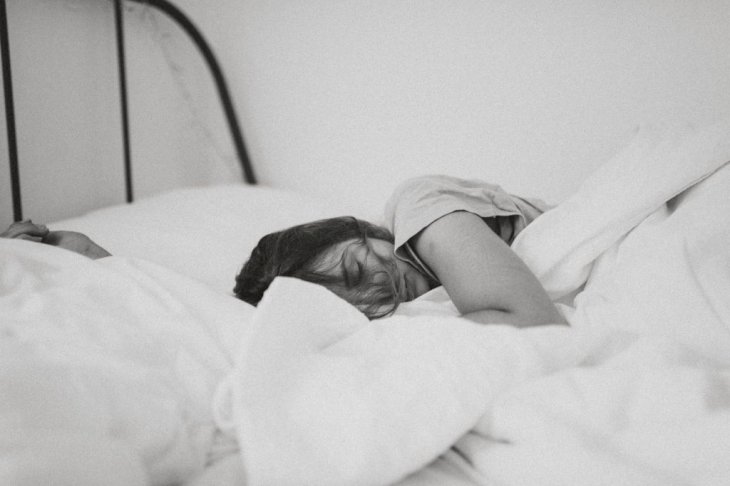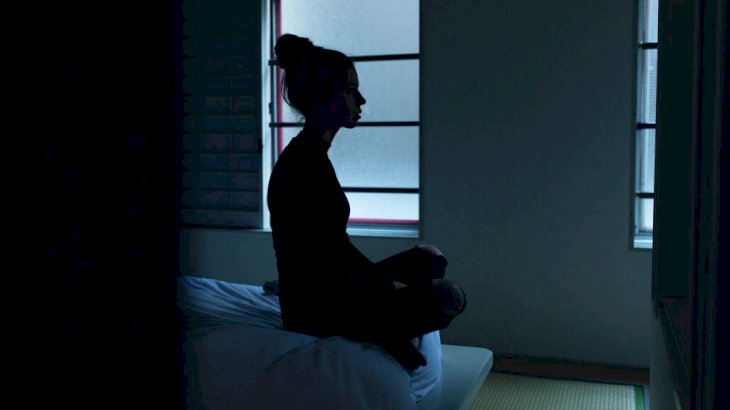
7 Things That Are Sabotaging Your Sleep
A lack of sleep can be detrimental to your lifestyle. With other distractions around us, the risk of restless nights is possible. Without realizing it, we may be responsible for holding ourselves back from getting some serious shut-eye.
Hands up if you relate to the feeling cranky throughout the day. Without a doubt, a good night’s sleep can make a world of difference in your day-to-day life. There’s no better feeling than waking up in the morning well-rested.
Self-awareness is a significant first step. We all know a peaceful night improves the quality of your sleep. Transition to a deeper sleep stage by removing these seven things stopping you from getting those needed zzz’s.
Drinking Alcohol Before Bed

Photo by Jacalyn Beales on Unsplash
As tempting as a glass of wine (or two) sounds before bed, we would not recommend it. Perhaps, you like how it helps you sleep faster (no judgment here). Believe it or not, your cheeky nightcap might do you more harm than good.
If you’re wondering why you find yourself jolting awake later during the night, it’s because alcohol disrupts your chances of getting a restful night of sleep. Try limiting your alcohol consumption to one glass, and don’t forget to follow up with lots of water after.
Late Dinners

Photo by Liubov Ilchuk on Unsplash
Late-night cheesy pizza before bed can evoke a sense of joy in anyone. Those late dinners before bed make it harder for your body to digest food. Besides, late-night eating or snacking not only disrupts your sleep, but you’ll also catch a bad case of acid reflux.
Having your meals earlier in the evening in smaller portions is recommended. If you’re hit with late-night cravings, reach for snacks that induce sleep instead. Research suggests trying some kiwi if you want to amp up your serotonin levels for a calm night of sleep.
Sedentary Lifestyle

Photo by Toa Heftiba on Unsplash
We see you trying to put off your workout routine again. If you want to catch some zzz’s, keep fit regularly. To improve your sleep quality, try working out for at least half an hour daily or four to five times a week.
Moreover, try personalizing your workouts with routines that work for you. For the early risers, incorporate a morning workout in your day. If you’re more productive in the evening, add a quick workout as you wind down for the night.
Caffeine In The Evening

Photo by Devin Avery on Unsplash
There’s nothing like a treasured cup of coffee for an extra zing to survive the day. However, indulging in another cup past evening hours makes it much harder for you to fall asleep. Also, caffeine has the potential to wake you up at night.
Caffeine takes a while to be consumed in the body, which may prevent you from moving into a deeper stage of sleep. For the coffee-obsessed lovers, opt for decaf or a smaller cup. Alternatively, have your coffee much earlier in the day.
Electronics Before Bed

Photo by Surface on Unsplash
We’re all guilty of mindlessly scrolling through our phones before bed. Once you start checking those emails, replying to texts, or catching up with your socials, you are contributing to a restless night of sleep.
Electronics emit blue light, which sends signals to your brain that trick your body into feeling awake. You then produce less melatonin which is vital for a good night’s sleep. Try f.lux, an app for your electronics that controls the amount of light emitted before bed.
Sleeping In Over Weekends

Photo by Kinga Cichewicz on Unsplash
After a hectic week, catching up on sleep over the weekends seems like a dream. When you keep hitting snooze for an extra few minutes, this can disrupt your daily sleep schedule. Your body might find it harder to fall asleep later on.
Even though you may feel rested throughout the weekend, your body might end up feeling drowsy later. In this case, the trick to having a peaceful night of sleep is maintaining the same wake-up time.
Not Winding Down Before Bed

Photo by Ben Blennerhassett on Unsplash
Learn to get into the habit of winding down before you sleep. You should not normalize jumping straight into bed immediately after your day-to-day activities. Right before you sleep, ensure you wind down thirty to forty-five minutes before.
Try engaging in relaxing activities such as mediation, yoga or reading a book, and so on. These activities should be enjoyable as long as they are done off your phone. Doing so regularly will let your body know that it’s time to wind down and sleep.